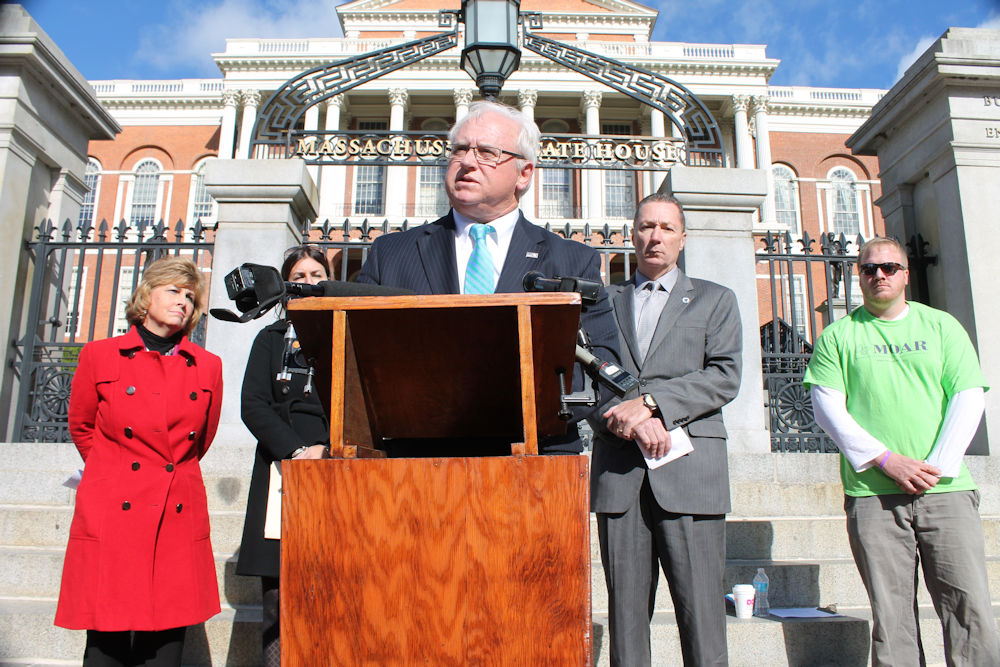The wife of a state trooper killed by a driver who allegedly smoked marijuana before the crash is making a stand against a ballot question that would legalize recreational marijuana.
Reisa Clardy made an emotional appeal to voters in a video released Monday by an anti-legalization group, in which she says that if the proposal passes, it will lead to “more fatalities.” Clardy’s husband, Trooper Thomas Clardy, was killed in March when a medical marijuana patient crashed into his cruiser. David Njuguna, of Webster, has pleaded not guilty to manslaughter and related crimes in Clardy’s death, WCVB reports. Opponents of Question 4, which would allow people 21 and older to possess an ounce of marijuana and grow up to 12 marijuana plants in their home, worry about the ballot initiative’s effect on public health and safety, while supporters say the law would give authorities the ability to tax and regulate the drug. “Driving is the most dangerous thing that we all do, most of us, every single day. Let’s not make it even more dangerous to get behind the wheel here in Massachusetts,” said Mary Maguire, AAA director of public and legislative affairs, adding that marijuana impairs drivers’ judgment and reaction times. Rep. Paul Tucker, former Salem police chief, said police aren’t equipped to determine marijuana intoxication.
“If this ballot question passes we’re asking police officers on the street to do an impossible task. We’re asking them to determine if somebody’s impaired or not,” he said. Unlike drunk driving tests where blood and breath measurements can give a clear indication of a motorist’s state of intoxication, marijuana drug tests generally measure whether someone has used the substance over a long period of time. Jim Borghesani, spokesman for the Yes on 4 campaign, said studies are underway that could potentially improve enforcement, and said police can now take action when someone is driving erratically.
“Police officers have every ability to pull over somebody who’s driving impaired and take them off the road,” Borghesani told reporters. There will be two studies in the field next year with researchers exploring the use of “intelligent fingerprinting” and saliva to determine recent marijuana usage, he said. In Colorado, where retail marijuana sales began in 2014, drivers suspected of marijuana intoxication are asked to consent to a blood test after they are arrested, with penalties for refusal. Borghesani said the Massachusetts legislature should have taken similar measures when the drug was decriminalized in 2008. State House News Service contributed to this story.
Trooper’s widow, officials just say ‘no’ to marijuana legalization

p.p1 {margin: 0.0px 0.0px 0.0px 0.0px; text-align: justify; font: 10.0px Arial; -webkit-text-stroke:


















